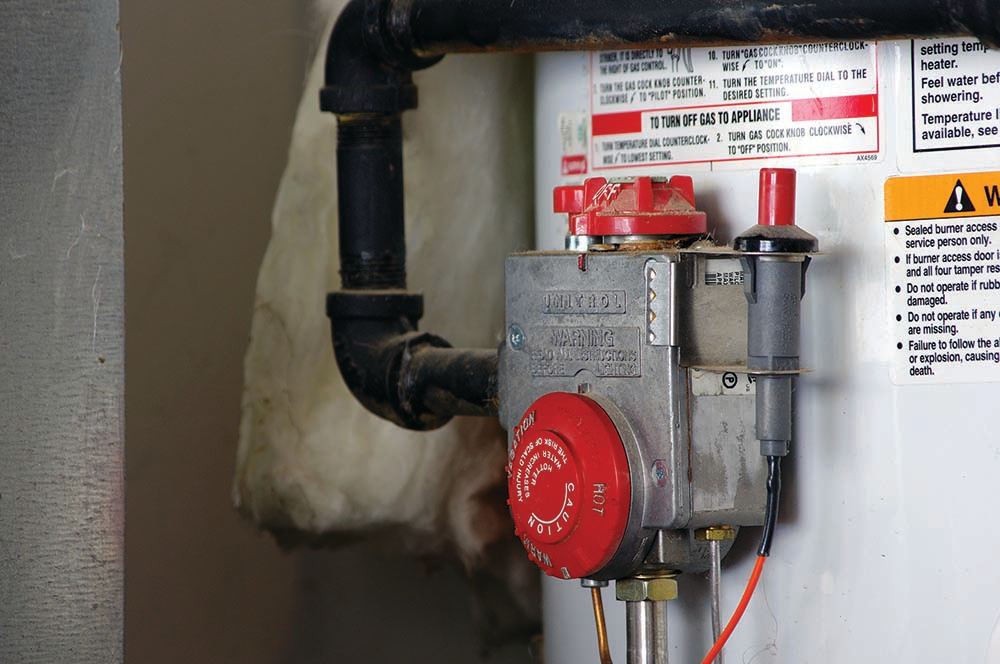
By Pat Keegan and Brad Thiessen
Q: It’s great to read about all the ways energy efficiency improvements to the home can save money, but what about folks who are renting or don’t have a lot of money to spend? Are there things we can do to reduce our energy bills?
A: That’s an excellent question. Not everyone can replace their furnace with an air-source heat pump, whether they’re renting, or their budget won’t allow it. Here are seven low-cost efficiency tips that can help you reduce your energy bills.
Mind the thermostat. You might be able to trim your energy bill by carefully managing the temperature in your home. The Department of Energy suggests setting your thermostat to 68 degrees F on winter days. If that’s too cool, try other ways to stay warm like layering with an extra sweater. You can save more energy by turning down the thermostat even lower at night or when no one is home. The same principle works in reverse during summer months. Just set the thermostat higher to reduce your energy use for air conditioning.
Go programmable. If you don’t always remember to adjust your thermostat manually, you could benefit from a programmable model. In the right situation, set correctly, programmable thermostats can save $150 a year. Some programmable thermostats can be managed from your smart phone or other devices. Before you purchase one, make sure your landlord approves.
Try zone heating. If you don’t mind less-used rooms being colder, you might be able to save energy (and money!) by zone heating. Electric baseboards make it easy because they typically have thermostat settings on the units or in each room. Portable electric space heaters can also be a good tool for zone heating if they are used safely and wisely in the area you spend the most time. Keep in mind, if you’re using space heaters, you’ll need to reduce the heating you’re supplying to the rest of the home. Space heaters that are used incorrectly can be dangerous and increase energy costs. If your heating system needs to be replaced, you can talk to your landlord about installing a mini-split system, which is perfect for zone heating and cooling, and easier to install than a new duct and furnace system.
Stop air leaks. Small gaps around windows, doors, wiring and plumbing penetrations can be major sources of energy loss. This problem can be alleviated with a little weather stripping and caulk, but you should check with your landlord before you get started. Better yet, convince the landlord to do the work! A $10 door draft stopper (also known as a “door snake”) is a simple way to block gaps underneath exterior doors. Sealing air leaks around your home could shave up to one-fifth of your heating and cooling bills.
Manage your windows and window coverings. Your windows may be letting heat out during the winter and letting heat in during the summer. Window coverings like medium or heavy-weight curtains and thermal blinds can help. On cold winter days, window coverings can keep warmth inside and improve comfort. Opening up window coverings when you’re receiving direct sunlight is a ‘passive solar’ technique that can help cut your heating costs. You can also cover windows with clear plastic to reduce heat loss and air leaks. During the summer, keep window coverings closed to block the sun and to keep windows from heating the cooler indoor air.
Look for energy wasters. There are also small steps you can take every day to reduce your energy use. Water heaters should be kept at the warm setting (120°F). Wash dishes and clothes on the most economical settings that will do the job and always wash full loads. Use the microwave instead of the oven when possible.
Landlords (and others) can help. We hope these tips will help you reduce your energy bills and increase your comfort, but consider talking to your landlord about additional ways to save, like installing better insulation, energy efficient windows or heating systems. Many landlords make these types of investments to add appeal to their rental properties, which ultimately improve the value of the property. A home energy audit is the best way to identify areas for energy efficiency improvements. Contact your electric cooperative to see if they offer energy audits or if they can recommend someone local. An audit would be a great way to start a conversation with your landlord about potential improvements.
Patrick Keegan writes on consumer and cooperative affairs for the National Rural Electric Cooperative Association, the Arlington, Va.-based service arm of the nation’s 900-plus consumer-owned, not-for-profit electric cooperatives. Write to [email protected] for more information.




